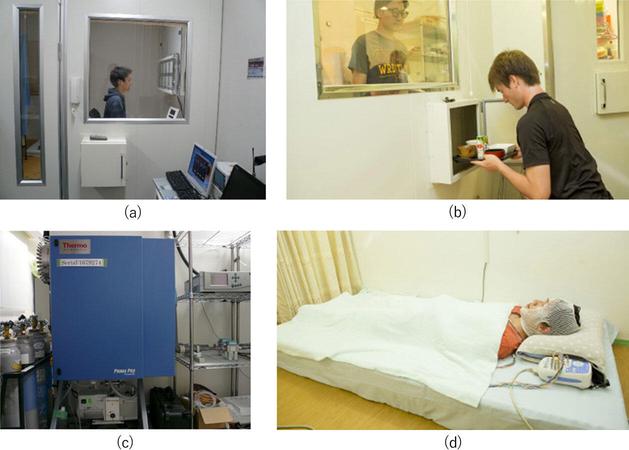A research team at the University of Tsukuba reported that individual differences in metabolism during nighttime sleep may contribute to obesity and metabolic syndrome. A paper was published in "Scientific Reports" and a press release was posted on the university's website.
Research background
Humans have a behavioral pattern of monophasic sleep, in which they sleep for a long time at night, and spend half a day from dinner to breakfast the next day by fasting, and the remaining half day consumes one day's worth of energy. Therefore, the aspect of energy metabolism changes completely between the daytime when one day's energy is ingested and the nighttime when the energy demand is covered by the accumulation. The ability to cope with this is called "metabolic flexibility". Decreased metabolic flexibility is expected to increase the risk of developing obesity and diabetes in the future, and has recently attracted attention.
It has been thought that energy metabolism during sleep gradually changes from carbohydrate oxidation to fat oxidation over time from supper. However, it has been difficult to grasp the changes over time in energy metabolism during sleep due to the limitation of the time resolution of measurement.
Therefore, in this research, we raised the time resolution of the human calorimeter * from the hour unit to the minute unit to the highest level in the world, and tackled this problem.
* Human calorimeter: A device that measures a subject's oxygen intake and carbon dioxide production from changes in oxygen concentration and carbon dioxide concentration in the entire room without wearing a mask for breath collection.
Research content and results
To measure energy expenditure during bedtime, a human calorimeter was used to continuously measure energy metabolism in healthy young adults who were not obese (Fig. 1). A total of 127 people were considered.


Fig. 1 Measurement of energy metabolism by human calorimeter
(A) The room in which the subject sleeps. A closed room of about 3 tatami mats takes in 80 to 100 L of fresh outside air per minute, and the room is kept at 25 ° C. (B) Meals are supplied through the double door during the measurement of energy metabolism. (C) Slight changes in oxygen and carbon dioxide concentrations in a closed room are measured with a mass spectrometer, and energy consumption, fatty acid conversion, and carbohydrate oxidation are calculated from the oxygen intake and carbon dioxide production of the subject staying in the room. (D) Sleep EEG was also measured during the energy metabolism measurement. (Source: University of Tsukuba)As a result, the following phenomena were observed, and it was found that individual differences in energy metabolism became apparent during sleep.
Individual differences at night are greater than day
In young adults, individual differences in the energy metabolism response to the daytime diet were small, while there were large individual differences in the increase in fatty acid formation at night (Fig. 2). In young, non-obese subjects, blood glucose levels after meal intake and the accompanying increase in insulin secretion strongly promote carbohydrate oxidation, which may conceal individual differences.
Increased fatty acid formation at night decreases with aging
A comparison between the 20s and 30s showed no difference in the response of energy metabolism to the daytime diet, but the increase in fatty acid formation at night was smaller in the subjects in their 30s. In other words, it was suggested that the decrease in metabolic flexibility with aging becomes apparent at night.
Carbohydrate oxidation increases again in the second half of sleep
Contrary to the myth that energy metabolism during sleep gradually changes from carbohydrates to fats over time from dinner, carbohydrate oxidation increases again from a few hours before awakening after maximal fatty acid formation during sleep. bottom. Furthermore, it was found that the time when this carbohydrate oxidation became active again was 1 to 2 hours earlier in females than in males.
The mechanism by which carbohydrate oxidation is activated in the latter half of sleep is unknown, but since similar changes over time are observed in body temperature during sleep, it is expected that there may be some common mechanism.
Figure 2 Metabolic flexibility and respiratory quotient
Respiratory quotient is the ratio of carbon dioxide production to oxygen intake, which is the ratio of fat and carbohydrate that are oxidized in the body. Changes in respiratory quotient between night and day provide metabolic flexibility. The respiratory quotient is 1.00 when only carbohydrates are oxidized, and 0.70 when only fat is oxidized. After eating, the oxidation of carbohydrates becomes active and the respiratory quotient rises, and during sleep, the oxidation of fat progresses and the respiratory quotient becomes low. Differences in respiratory quotient changes (metabolic flexibility) were evident during sleep (blue: people with high metabolic flexibility, red: people with low metabolic flexibility). (Source: University of Tsukuba)the next deployment
The reduced metabolic flexibility that manifests during sleep may be a precursor or cause of the onset of obesity, diabetes, metabolic syndrome, and the like.
According to the research group, "In order to clarify this point, it is necessary to examine not only healthy people but also data on sleep energy metabolism of various subjects such as obesity and diabetes, and acceleration of data accumulation. Collaboration with domestic and overseas research groups will also be important for the trend toward obesity. In addition, based on the fact that individual differences in metabolic flexibility become apparent during sleep, the relationship between sleep quality and energy metabolism is also discussed. We will continue to study and pursue the possibility of "improving energy metabolism through improvement of sleep" or, conversely, "improving sleep quality through improvement of energy metabolism". "
Related information ・ Press release
Discovered that the flexibility of energy metabolism appears during sleep (University of Tsukuba)
Bibliographic information
The original title is "Metabolic Flexibility during Sleep". [Sci Rep. 2021 Sep 8; 11 (1): 17849] Click here for the original text (Springer Nature)
Copy the URL and title of this article